List of Muslim Nobel laureates
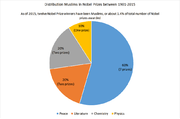
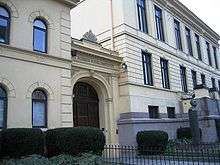
The Nobel Prize (Swedish pronunciation: [noˈbɛl], Swedish definite form, singular: Nobelpriset, Norwegian: Nobelprisen) is a set of annual international awards bestowed in a number of categories by Scandinavian committees in recognition of cultural and scientific advances. The will of the Swedish chemist Alfred Nobel established the prizes in 1895. Nobel Prizes have been awarded to over 800 individuals,[1] of whom 12 have been Muslim.
The prizes in Physics, Chemistry, Physiology or Medicine, Literature, and Peace were first awarded in 1901.[2] An associated prize in Economics has been awarded since 1969.[3][4] The Peace Prize is awarded in Oslo, Norway, while the other prizes are awarded in Stockholm, Sweden. The Nobel Prize is widely regarded as the most prestigious award available in the fields of literature, medicine, physics, chemistry, peace and economics.
Muslims make up over 23% of the world's population.[5][6][7] And as of 2015, twelve Nobel Prize winners have been Muslims. More than half of the twelve Muslim Nobel laureates were awarded the prize in the 21st century. Seven of the twelve winners have been awarded the Nobel Peace Prize, including a controversial award to Yasser Arafat. The recipient of the 1979 Nobel Prize in Physics, Abdus Salam, was a member of the Ahmadiyya community of Pakistan. Aziz Sancar is the second Turkish Nobel laureate and the first Muslim to be awarded Nobel prize in the field of molecular biology in 2015 .
Peace
| Year | image | Laureate | Country and profession | Rationale | comment |
|---|---|---|---|---|---|
| 1978 | 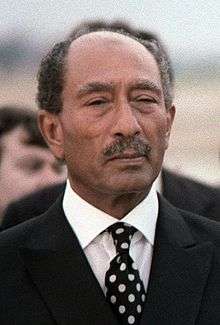 |
Anwar al-Sadat (25 December 1918 – 6 October 1981) | He, along with Menachem Begin was awarded 1978 Nobel Peace Prize "for their contribution to the two frame agreements on peace in the Middle East, and on peace between Egypt and Israel, which were signed at Camp David on September 17, 1978".[8] | The first Muslim to receive a Nobel Prize.[9][10][11][12][13][14][15] | |
| 1994 | 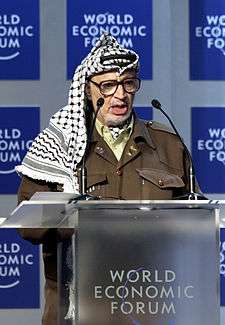 |
Yasser Arafat (24 August 1929 – 11 November 2004) | The 1994 Nobel Peace Prize was awarded jointly to Arafat, Shimon Peres and Yitzhak Rabin "for their efforts to create peace in the Middle East".[16][17] | The first Muslim Palestinian to receive a Nobel Prize.[9][18][19][20][21][22] | |
| 2003 | 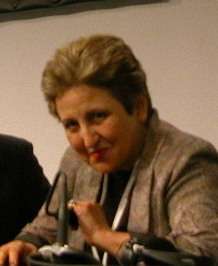 |
Shirin Ebadi (born 21 June 1947) | The 2003 Nobel Peace Prize was awarded to Ebadi "for her efforts for democracy and human rights. She has focused especially on the struggle for the rights of women and children".[23] | The first and only Iranian to receive a Nobel Prize. She was also the first Muslim woman to receive such an honor.[9][24][25][26][27] Note that Doris Lessing born and raised for 5 years in modern day Iran is a fellow laureate. | |
| 2005 | 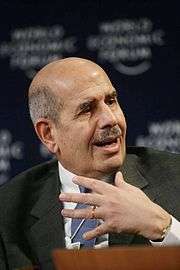 |
Mohamed El Baradei (born June 17, 1942) | The 2005 Nobel Peace Prize was jointly awarded to El Baradei and IAEA "for their efforts to prevent nuclear energy from being used for military purposes and to ensure that nuclear energy for peaceful purposes is used in the safest possible way".[28][29] | He was the second Egyptian to be awarded Nobel Peace Prize (2005).[9][30][31][32][33] | |
| 2006 | 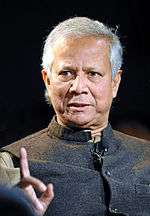 |
Muhammad Yunus (born 28 June 1940) | The 2006 Nobel Peace Prize was jointly awarded to Yunus and Grameen Bank "for their efforts to create economic and social development from below".[34] | The first Bangladeshi and Bengali Muslim Nobel laureate, and overall, the third person from Bengal to win a Nobel prize.[9][35][36][37][38][39][40] | |
| 2011 | 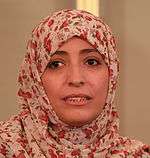 |
Tawakel Karman (born 7 February 1979) | The 2011 Nobel Peace Prize was jointly given to Ellen Johnson Sirleaf, Leymah Gbowee and Karman "for their non-violent struggle for the safety of women and for women's rights to full participation in peace-building work".[41] | The first Arab woman and first and only Yemeni to receive a Nobel Prize.[42][43][44][45][46] | |
| 2014 | 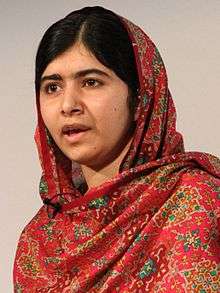 |
Malala Yousafzai (born 12 July 1997) | The 2014 Nobel Peace Prize was jointly given to Kailash Satyarthi and Yousafzai, "for their struggle against the suppression of children and young people and for the right of all children to education".[47] | At the age of 17, Yousafzai is the youngest Nobel Prize recipient ever.[48] She is also the second Pakistani and first ethnic Pashtun to be awarded a Nobel Prize.[49] |
Literature
| Year | image | Laureate | Country and profession | Rationale | comment |
|---|---|---|---|---|---|
| 1988 | 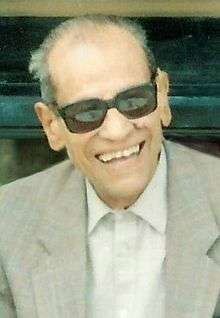 |
Naguib Mahfouz (11 December 1911 – 30 August 2006) |
The 1988 Nobel Prize in Literature was given to Naguib Mahfouz "who, through works rich in nuance—now clear-sightedly realistic, now evocatively ambiguous—has formed an Arabian narrative art that applies to all mankind".[50][51] | The first Muslim author to receive such a prize.[9][52][53] | |
| 2006 | 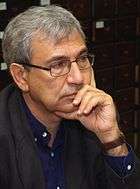 |
Orhan Pamuk (born 7 June 1952) | The 2006 Nobel Prize in Literature was awarded to Orhan Pamuk "who in the quest for the melancholic soul of his native city has discovered new symbols for the clash and interlacing of cultures".[54][55] | The first Turk to receive the Nobel Prize, He describes himself as a Cultural Muslim who associates the historical and cultural identification with the religion while not believing in a personal connection to God.[9][56][57][58] |
Sciences
Physics
| Year | image | Laureate | Country and profession | Rationale | comment |
|---|---|---|---|---|---|
| 1979 | 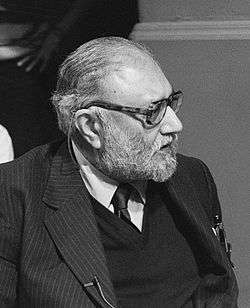 |
Mohammad Abdus Salam (29 January 1926 – 21 November 1996) |
The 1979 Nobel Prize in Physics was awarded jointly to Sheldon Lee Glashow, Salam, and Steven Weinberg "for their contributions to the theory of the unified weak and electromagnetic interaction between elementary particles, including, inter alia, the prediction of the weak neutral current".[59] | He is the first Pakistani to receive the award. He is also the first and only Pakistani scientist to be awarded the Nobel Prize.[60][61] He was a member of the world wide Ahmadiyya Muslim community, which the government of Pakistan declared to be non-Muslim in Pakistan in a 1974 constitutional amendment.[62] |
Chemistry
| Year | image | Laureate | Country and profession | Rationale | comment |
|---|---|---|---|---|---|
| 1999 | 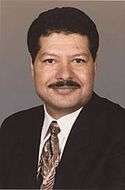 |
Ahmed Zewail (26 February 1946 - 2 August 2016)[63] |
The 1999 Nobel Prize in Chemistry was awarded to Ahmed Zewail "for his studies of the transition states of chemical reactions using femtosecond spectroscopy".[64] | He is the first Muslim chemist to be awarded the Nobel Prize and the second Muslim scientist.[9][65][66][67][68] | |
| 2015 | 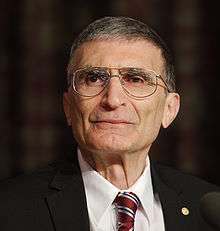 |
Aziz Sancar (born September 8, 1946) |
The 2015 Nobel Prize in Chemistry was awarded to Aziz Sancar "for mechanistic studies of DNA repair"[69] | He is the first Turkish chemist, and the second Turkish to date to be awarded the Nobel Prize and the third Muslim scientist.[70][71]
|
Further reading
Articles
- Mysticism in Contemporary Islamic Political Thought:Orhan Pamuk and Abdolkarim Soroush by John von Heyking,University of Lethbridge[72]
- Islam, Melancholy, and Sad, Concrete Minarets: The Futility of Narratives In Orhan Pamuk's" The Black Book by Ian Almond[73]
Books
- The Age of Deception: Nuclear Diplomacy in Treacherous Times by Mohamed El Baradei.[74]
- Islam, Orientalism and Intellectual History: Modernity and the Politics of Exclusion since Ibn Khaldun (Library of Middle East History) by Mohammad R. Salama ISBN 1848850050 and ISBN 1848850050.[75]
- Orhan Pamuk and the Politics of Turkish Identity: From Islam to Istanbul by Erdag Goknar, ISBN 0415505380, ISBN 978-0415505383, Routledge Publication.[76]
Biography
- Cosmic Anger: Abdus Salam - The First Muslim Nobel Scientist. by Gordon Fraser ,ISBN 0199697124 & ISBN 978-0199697120.[77]
- Yasser Arafat (Biography (Lerner Hardcover)) by George Headlam-ISBN 0822550040 & ISBN 978-0822550044.[78]
- Anwar Sadat: Visionary Who Dared by Joseph Finklestone.[79]
Autobiography
- Iran Awakening: One Woman's Journey to Reclaim Her Life and Country (2007) by Shirin Ebadi (ISBN 9780676978025).[80]
- Ahmed Zewail Autobiography.[81]
- Banker to the Poor: The Autobiography of Muhammad Yunus, Founder of Grameen Bank. ISBN 0195795377 & ISBN 978-0195795370.[82]
- Sadat, Anwar (1978). In Search of Identity: An Autobiography. New York: Harper & Row. ISBN 978-0060137427.[83]
See also
- List of Nobel Peace Laureates
- List of black Nobel Laureates
- List of Jewish Nobel laureates
- List of Christian Nobel laureates
- List of Muslim scientists
- Lists of Muslims
- Lists of people by belief
- List of Nobel laureates by country
- List of Nobel laureates
- List of female Nobel laureates
- Lists of People
- List of Hindu Nobel laureates
References
The year of receiving Nobel Prize is given after each Nobel Laureate in this article. For verification of candidacy of above listed Nobel Laureates, please go to nobelprize.org,[84] and search the corresponding year of reception of Nobel Prize in the respective field.
- ↑ "All Nobel Laureates". Nobel Foundation. Retrieved 2010-03-01.
- ↑ “Which country has the best brains?”, BBC News, published October 8, 2010, retrieved December 6, 2011.
- ↑ Nobel Prize (2007), in Encyclopædia Britannica, accessed 14 November 2007, from Encyclopædia Britannica Online:
“An additional award, the Sveriges Riksbank Prize in Economic Sciences in Memory of Alfred Nobel, was established in 1968 by the Bank of Sweden and was first awarded in 1969”
- ↑ About the Nobel Prizes, Nobel Foundation, retrieved April 8, 2012
- ↑ "Executive Summary". The Future of the Global Muslim Population. Pew Research Center. Retrieved 22 December 2011.
- ↑ "Christian Population as Percentages of Total Population by Country". Global Christianity. Pew Research Center. Retrieved 22 December 2011.
- ↑ "Turmoil in the world of Islam". Deccan Chronicle.
- ↑ "The Nobel Peace Prize 1978", Nobel Foundation,retrieved March 24, 2012.
- 1 2 3 4 5 6 7 8 "Muslim Nobel Prize Winners", 'Islamic History Month Canada' accessed March 24, 2012
- ↑ 'Answer.com' article on Anwar al-Sadat, retrieved March 24, 2012.
- ↑ 'Nobel Lecture, December 10, 1978' by Anwar Sadat, Nobel Foundation,retrieved April 5, 2012.
- ↑ "The Islamization Of Egypt" by Adel Guindy,retrieved April 7, 2012.
- Sadat's famous slogan, "I am a Muslim president of a Muslim state" '
- ↑ "Anwar Al-Sadat, The First Islamist Ruler In Egypt's Modern History", Coptic Nationalism,posted March 30, 2012, retrieved April 7, 2012.
- "The Pope must understand that I am a Muslim President of a Muslim State"
- Source: 'The exact words of Sadat in Arabic are: "إن البابا يجب أن يعلم أنني رئيس مسلم لدولة مسلمة." These words Mohamed Hassanein Heikal translates in his book, Autumn of Fury, as, "The Pope must understand that I am the Muslim President of a Muslim country." [Mohamed Heikal, Autumn of Fury, the Assassination of Sadat (London; Corgi Book; 1984); p. 228] This is not an accurate translation. The words should be translated as in the text of my article with an emphasis on the words "a Muslim State", that is Egypt.'
- ↑ 'Anwar Sadat', NNDB,retrieved April 7, 2012.'Muslim'
- ↑ Peacemaker hero Anwar al-Sadat by Youssef, 'The My Hero Project', accessed March 21, 2012.
- "Sadat was a devout Muslim from his early days, benefiting from an Islamic education"
- ↑ 'Yasser Arafat-Biography', Nobel Foundation,retrieved April 5, 20122.
- ↑ "The Nobel Peace Prize 1994", Nobel Foundation,retrieved March 24, 2012.
- ↑ "Yasser Arafat - Biographical". nobelprize.org.
- ↑ "Yasser Arafat-Nobel Lecture", Nobel Foundation,retrieved April 5, 2012.
- ↑ 'The Muslim Arafat',retrieved April 5, 2012.
- ↑ 'Yasser Arafat', NNDB, retrieved April 7, 2012.'Muslim'
- ↑ Jewish Virtual Library, accessed March 24, 2012.
- "a Sunni Muslim".
- ↑ "The Nobel Peace Prize 2003", Nobel Foundation, retrieved March 24, 2012.
- ↑ "Nobel Peace Prize winner promotes her new book The Golden Cage", by Jasmine Gould, 'Connect2Mason',dated April 26, 2011, retrieved April 4, 2012.
- "The first Iranian and Muslim woman to win the Nobel Peace Prize for her work in human rights"
- ↑ "Shirin Ebadi – Iran 2003", 'Meet the Laureates', Nobel Women's Initiative,accessed April 4, 2012.
- "She is the first Muslim woman to receive the Nobel Peace Prize"
- ↑ "In the name of the God of Creation and Wisdom", Nobel Lecture by Shirin Ebadi, Oslo, December 10, 2003, Nobel Foundation, retrieved April 4, 2012.
- ↑ "Shirin Ebadi: A Conscious Muslim" by Diana Hayworth, accessed March 24, 2012.
- "For some, Ms. Ebadi is a source of inspiration and pride, as she is the first Muslim woman and only Iranian to receive the Nobel Peace Prize."
- ↑ "The Nobel Peace Prize 2005", Nobel Foundation,retrieved March 24, 2012.
- ↑ "Mohamed El-Baradei-Biography", Nobel Foundation,retrieved April 5, 2012.
- ↑ "Outgoing IAEA chief leaves complex legacy",Jahn, George (30 November 2009), Associated Press, accessed 5 February 2011 on msnbc.com.
ElBaradei, who describes himself as having a Muslim background, sometimes cites his favorite Christian prayer when speaking of his role on the world stage.
- ↑ "NNDB article on Mohamed El Baradei", retrieved March 24, 2012.'Muslim'.
- ↑ "Muslim Contribution to World Peace" by Minhaj Qidwai, accessed March 21, 2012.
- "Recipient of Nobel Peace Prize Mohamed ElBaradei an Egyptian Muslim can be a role Model for all those who want to contribute towards peace and prosperity in the modern world."
- ↑ 'Nobel Lecture by Mohamed El-Baradei, Oslo, December 10, 2005.', Nobel Foundation, retrieved April 5, 2012.
- "I am an Egyptian Muslim"
- ↑ "The Nobel Peace Prize 2006", Nobel Foundation,retrieved March 24, 2012.
- ↑ "Yunus martyred, Bangladesh marred" by 'Misha Hussain', Dawn.com,April 6, 2011, retrieved April 7, 2012.
"a Bengali and a Muslim" - ↑ "Muhammad Yunus Ways", 'Islamic Inspiration', published March 27, 2011, retrieved March 24, 2012.
"he is a Muslim" - ↑ 'Muhammad Yunus (1940- )', The Union of Islamic World Students,retrieved April 5, 2012,'a devout muslim'
- ↑ 'Muhammad Yunus', NNDB,retrieved April 5, 2012.'Muslim'
- ↑ "Microcredit pioneer wins Nobel Peace Prize — and puts Episcopalian- and Anglican combatants to shame",The Questioning Christian, dated October 13, 2006, retrieved April 5, 2012.
- ↑ , Microfinance and Islamic Finance - A Perfect Match by Dr. Linda Eagle, accessed March 24, 2012.
- "A Muslim Bangladeshi economist and economics professor"
- ↑ "The Nobel Peace Prize 2011", Nobel Foundation,retrieved March 24, 2012.
- ↑ Democracy Now! article on Tawakel Karman, "Yemeni Activist Tawakkul Karman, First Female Arab Nobel Peace Laureate: A Nod for Arab Spring", dated October 7, 2011, retrieved March 21, 2012.
- ↑ "Tawakul Karman, Nobel Peace Prize Laureate, Talks the Talk and Walks the Walk" by 'Sahar Taman', The Huffington Post, published October 8, 2011, retrieved April 7, 2012.
- "a Yemeni Muslim woman"
- ↑ "In the name of God the Compassionate the Merciful",Nobel Lecture by Tawakkul Karman, Oslo, 10. December 2011, Nobel Foundation,retrieved April 5, 2012.
- ↑ "Tawakel Karman (The Nobel Peace Prize winner 2011) & Hijab" by 'Sarah Ahmed', dated December 12, 2011, retrieved March 21, 2012.
- "She is a co-recipient of the 2011 Nobel Peace Prize, becoming the first Yemeni, the first Arab woman, and the second Muslim woman to win a Nobel Prize and the youngest Nobel Peace Laureate to date."
- ↑ "Tawakkul Karman is the first arab woman and the youngest Nobel Peace Laureate in hijab", 'Haute Hijab', December 20, 2011, accessed March 21, 2012.
- "Tawakkul Karman, a Muslim, was the first Arab woman awarded the Nobel Peace Laureate"
- ↑ "The Nobel Peace Prize 2014" (PDF). Nobel Foundation. Retrieved 2014-10-10.
- ↑ "BBC News - Malala and Kailash Satyarthi win Nobel Peace Prize". BBC News.
- ↑ "Malala Yousafzai, Kailash Satyarthi win Nobel Peace Prize". Dawn. 14 October 2014. Retrieved 14 October 2014.
- ↑ "The Nobel Prize in Literature 1988", Nobel Foundation, retrieved March 24, 2012.
- ↑ 'Nobel Lecture by Naguib Mahfouz', Nobel Foundation,retrieved April 5, 2012.
- ↑ "Naguib Mahfouz's Socialistic Sufism: An Intellectual Journey from the Wafd to Islamic Mysticism", Yagi, Kumiko, Ph.D. Harvard University, 2001. 235 pages. Adviser: Graham, William A. Publication Number: AAT 3028463, accessed March 24, 2012.
- ↑ "Naguib Mahfouz – The Son of Two Civilizations" by 'Anders Hallengren', article on Naguib Mahfouz, Nobel Foundation, retrieved March 24, 2012.
- "a pious moslem believer"
- ↑ "The Nobel Prize in Literature 2006", Nobel Foundation, retrieved March 24, 2012.
- ↑ 'Orhan Pamuk-Autobiography', Nobel Foundation, retrieved April 5, 2012.
- ↑ "Orhan Pamuk, Nobel Laureate, in Conversation with Reza Aslan", Levantine Cultural Center, posted October 16, 2009, accessed March 21, 2012.
- ↑ "Orhan Pamuk: Incompatibility of Islam and Democracy Has Been Disproven", 'Islam Today', dated March 30, 2011, retrieved April 5, 2012.
- ↑ "Do you consider yourself a Muslim?",
"Orhan Pamuk and the Turkish Paradox", Spiegel Online, dated December 21, 2005, retrieved March 21, 2012.
- "I consider myself a person who comes from a Muslim culture. In any case, I would not say that I'm an atheist. So I'm a Muslim who associates historical and cultural identification with this religion. I do not believe in a personal connection to God; that's where it gets transcendental. I identify with my culture, but I am happy to be living on a tolerant, intellectual island where I can deal with Dostoyevsky and Sartre, both great influences for me."
- ↑ “The Nobel Prize in Physics 1979”, Nobel Foundation, retrieved March 24, 2012.
- ↑ "Abdus Salam-Biography", Nobel Foundation, retrieved April 5, 2012.
- "Abdus Salam is known to be a devout Scientist, whose religion does not occupy a separate compartment of his life; it is inseparable from his work and family life. He once wrote: 'The Holy Quran enjoins us to reflect on the verities of Allah's created laws of nature; however, that our generation has been privileged to glimpse a part of His design is a bounty and a grace for which I render thanks with a humble heart.'",
- Primary Source:The biography was written by Miriam Lewis, now at IAEA, Vienna, who was at one time on the staff of ICTP (International Centre For Theoretical Physics, Trieste).
- ↑ Google Books,Ghani, Abdul (1982). Abdus Salam: a Nobel laureate from a Muslim country : a biographical sketch, Publisher-Maʻaref Printers, Karachi. pp. i–xi.,retrieved April 8, 2012.
- ↑ Government of Pakistan, (GoPAK). "Second Amendment". Ministry of Law and Justice. The Electronic Government of Pakistan.
- ↑ "Egyptian Chemist Zewail, Noble Prize-Winner, Dies at 70". The New York Times. Associated Press. 2 August 2016. Retrieved 9 August 2016.
- ↑ "The Nobel Prize in Chemistry 1999", Nobel Foundation, retrieved March 24, 2012.
- ↑ Muslim "Nobel Prize Winner Ahmed Hassan Zewail" by Bernie, 'Planck's constant', accessed March 24, 2012.
- ↑ Ahmed Zewail's caltech site.
- ↑ Science in the Islamic world: an interview with Nobel Laureate Ahmed Zewail, The Fountain Magazine, Issue 67, January–February 2009, retrieved March 21, 2012.
- "I'm very proud of the value system that I was given by my family and the way I grew up as a Muslim in Egypt."
- ↑ "The West and Islam need not be in conflict" by 'Ahmed Zewail', The Independent, October 24, 2006, retrieved April 11, 2012.
- "The author is the only Arab Muslim to receive the Nobel Prize in science, 1999"
- ↑ "The Nobel Prize in Chemistry 2015". Nobelprize.org.
- ↑ Aziz Sancar won 2015 Nobel prize
- ↑
- ↑ Mysticism in Contemporary Islamic Political Thought by John von Heyking, University of Lethbridge,Volume XIX, Nos. 1 and 2, 2006, Humanitas accessed April 5, 2012.
- ↑ New Literary History,Vol.34,No.1,Inquiries into ethics and narratives(Winter 2003),pp. 75-90, retrieved April 5, 2012.
- ↑ Sunday Book Review, The New York Times, By Leslie H. Gelb, published May 6, 2011, retrieved March 21, 2012.
- ↑ intellectual history of muslims, retrieved April 6, 2012.
- ↑ Orhan Pamuk and the Politics of Turkish Identity: From Islam to Istanbul [Paperback],retrieved April 5, 2012.
- ↑ “Cosmic Anger: Abdus Salam - The First Muslim Nobel Scientist” by Gordon Fraser, Oxford University Press, retrieved March 24, 2012.
- ↑ Yasser Arafat biography, retrieved April 6, 2012.
- ↑ Google Books-Anwar Sadat:visionary who dared, retrieved April 6, 2012.
- ↑ Shirin Ebadi's autobiographical book, retrieved April 6, 2012.
- ↑ Ahmed Zewail Autobiography, Nobel Foundation, retrieved April 5, 2012.
- ↑ Autobiography of Muhammad Yunus, retrieved April 6, 2012.
- ↑ Anwar El Sadat: In Search of Identity an Autobiography, retrieved April 6, 2012.
- ↑ All Nobel Laureates, Nobel Foundation, retrieved April 6, 2012.
External links
- “Muslim Nobel Prize Winners”, 'BZNotes', accessed March 21, 2012.
- “Muslim Nobel Prize Winners”, Scribd, accessed March 21, 2012.
- “Nobel Laureates and the Muslim World” by Saleem H. Ali, Newsvine, February 14, 2010, retrieved March 21, 2012.
- “Nobel laureates of the Islamic world” - S Iftikhar Murshed, The News International, April 3, 2011, retrieved March 21, 2012.
- “Professor Abdus Salam”, accessed April 4, 2012.
- “No Nobels for the Muslim World” by Aziz Akhmad, The Express Tribune, published October 6, 2011, retrieved March 19, 2012.
- “Muslim Nobel laureates: Muslim economist, writer win Nobel prizes”,accessed March 24, 2012.
- “Abdus Salam, 'First Muslim Nobel Laureate'”, ‘The Culture Trip’, accessed March 21, 2012.
- “Abdus Salam was a theoretical physicist who became the first Pakistani and the first Muslim to be awarded the Nobel Prize in the sciences.”
- “Dr. Abdus Salam: Nobel Laureate in Physics”,accessed April 4, 2012.
- “Tawakul Karman speaks: Islam Supports Democracy”, 'Onislam', December 10, 2011, accessed March 21, 2012.
- “A Muslim woman's place is in society: Nobel Laureate”, France 24, dated November 2, 2009, retrieved March 21, 2012.
- “Nobel Prize reflects women's struggle in the Muslim world”, retrieved March 19, 2012.
- “Nobel Peace Prize Winner Tawakkul Karman Profile: The Mother of Yemen's revolution”, The Huffington Post, dated October 7, 2011, retrieved March 19, 2012.
- “Dear ‘World Community’: You Are Not Our Equals” by William A. Levinson, American Thinker, May 31, 2011, retrieved March 21, 2012.
- “Nobel Prize winner highlights women’s role in Arab Spring”,‘The Michigan Daily’,Published November 15, 2011, retrieved April 4, 2012.
- “Nobel Peace Prize Winner Tawakul Karman: Islam No Threat to Democracy”,reprinted ‘Positive Islam’, dated December 12, 2011, 1st printed Reuters December 9, 2011, accessed April 4, 2012.
- “The Nobel Prize - Muslim Winners”,by Sadaqat,accessed April 4, 2012.
- “Women Nobel Peace Laureates Congratulate Three New Women Laureates”, Nobel Women's Initiative,dated October 7, 2011, retrieved April 4, 2012.
- Karman joins Shirin Ebadi, who won the Nobel Peace prize in 2003 for her work to bring equal rights to women in Iran, as the second Muslim woman to win the Nobel Peace prize.
- “As a Muslim woman, I am well aware of the difficult and severe conditions of your work and struggle,” said Ebadi in her letter today to Karman. Karman receives frequent death threats, and was thrown in jail last January. “I admire your tremendous work and courage. This victory will certainly inspire and reassure the million of Muslim women who suffer from discrimination and who fight for equality of rights between men and women—and also sends a message to countries going through the Arab Spring that true democracy will only be achieved if women also receive equal rights.”
- “Pamuk on Multiculturalism, Secularism, Islam, and the EU ”,‘Turkish Politics in Action’,dated January 18, 2009, retrieved April 5, 2012.
- “Two Souls -- In Europe And Turkey”,an interview with Orhan Pamuk by Nathan Gardels,‘Nobel Laureates Plus’,NPQ,dated November 28, 2006, retrieved April 5, 2012.
- “Nobel author bridges Islam and the West” by Mark Feeney, The Boston Globe,October 13, 2006, retrieved April 5, 2012.
- “Listen to the damned” by Orhan Pamuk, The Guardian,dated September 29, 2001, retrieved April 5, 2012.
- “It is not Islam or poverty that succours terrorism, but the failure to be heard”
- “Muhammad Yunus addresses Islamic finance forum ” by Talal Malik,‘Arabian Business’,dated April 13, 2008, retrieved April 5, 2012.
- ‘Anwar Sadat’, about.com,retrieved April 5, 2012.
- “Thirty years later, Sadat's widow still hopes for peace”, CNN,dated March 26, 2009, retrieved April 5, 2012.
- “The Tragedy of Muslim Civilization” by Aftab Zaidi,Nirmukta, November 13, 2011, retrieved April 5, 2012.
- “Naguib Mahfouz and modern ‘Islamic identity’” by ‘Mehnaz Mona Afridi’, UNISA, November 2008, retrieved April 7, 2012.
- “How closely have the changes and developments detailed in Mahfouz’s descriptions of ordinary Egyptian lives paralleled what the world has witnessed as ageneral growing “Islamization” of the Muslim world? In my research, I have found that other Muslim writers, such as Leila Ahmed (Egypt), Mohsin Hamid (Pakistan/India), and Orhan Pamuk (Turkey) have also observed and commented on the Islamization of the culture.”